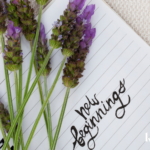Stories are the threads that weave together the fabric of our lives. They shape our identities, connect us with others, and guide us through the complexities of the human experience. But stories are more than just narratives; they are powerful tools for healing, growth, and transformation. As we begin this month’s exploration of “The Stories We Tell,” let’s dive into how the stories we share—and the ones we keep hidden—can profoundly influence our lives and our journey toward healing.
The Power of Storytelling
From ancient times to the digital age, storytelling has been a fundamental aspect of human connection. Through stories, we pass down knowledge, preserve culture, and make sense of our experiences. But storytelling isn’t just for others; it’s also a way to understand ourselves. The stories we tell about our own lives—whether to others or within the privacy of our own minds—hold immense power. They can uplift or burden us, inspire or discourage us, heal or harm us.
Consider the narrative you hold about your life. Do you see yourself as the hero or the victim? Are your past experiences framed as lessons learned or as unhealed wounds? The way we choose to tell our stories can determine the course of our lives. When we embrace stories of resilience, hope, and growth, we pave the way for healing and empowerment.
Stories as a Tool for Healing
One of the most profound aspects of storytelling is its ability to heal. When we share our stories—especially those of pain, loss, or struggle—we create space for healing, not just for ourselves but for others as well. Vulnerability in storytelling fosters connection, empathy, and understanding. It allows us to process our emotions, find meaning in our experiences, and move forward with renewed strength.
For those who have faced grief or trauma, telling their story can be a crucial part of the healing journey. It transforms the pain into something that can be shared, understood, and ultimately, released. The act of telling your story can turn a wound into a scar—a reminder of what was, but no longer a source of pain.
Changing the Narrative
Sometimes, the stories we tell ourselves need to be rewritten. We all have internal narratives—stories about who we are, what we deserve, and what we’re capable of. These narratives can either empower us or hold us back. If you’ve been telling yourself a story of limitation or unworthiness, it’s time to change that narrative. Rewriting your story isn’t about denying the past; it’s about reframing it in a way that honors your growth and potential.
As we move through this month, take time to reflect on the stories you tell yourself and others. Are they serving you? Do they reflect your true self, or are they remnants of past hurts or societal expectations? By consciously shaping your stories, you can steer your life in a direction that aligns with your deepest values and aspirations.
The Stories We Share
This month, we’ll explore the impact of shared stories—the ones we tell to others and the ones we hear. We’ll look at how collective storytelling can create communities, foster resilience, and build bridges of understanding. You’ll hear about the power of storytelling in different contexts, from personal healing to social change.
We’ll also feature stories from Kelly Buckley’s podcast “Broken, Beautiful, Me,” where you’ll find powerful examples of how individuals have used their stories to transform grief into gratitude, loss into resilience. These stories are a testament to the incredible strength of the human spirit and the healing power of sharing our journeys.
As we embark on this month’s theme, remember that your story is yours to tell—and yours to shape. Whether you’re revisiting old narratives or crafting new ones, know that every story has the potential to heal, inspire, and transform. Let’s explore the stories we tell, and together, find the strength and hope they can bring to our lives.
This September, I invite you to join the conversation. Share your story, listen to others, and discover the power of storytelling in shaping our lives and healing our hearts.







